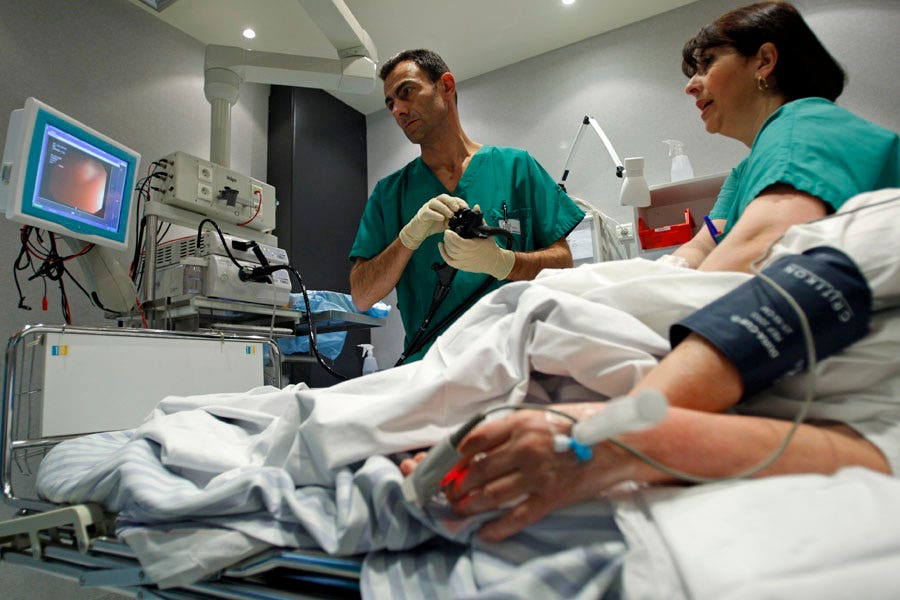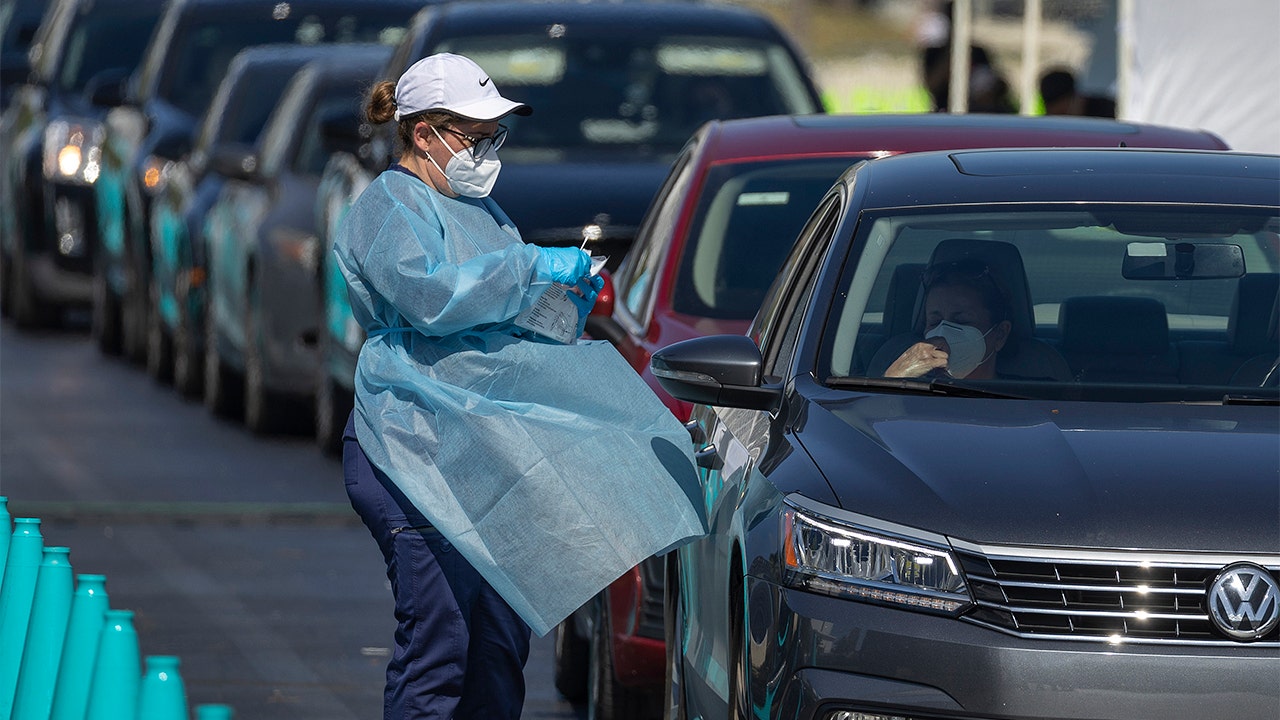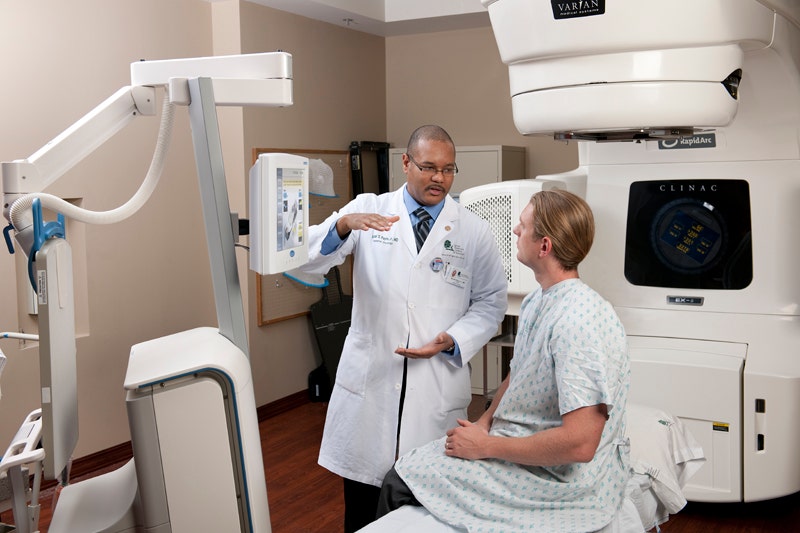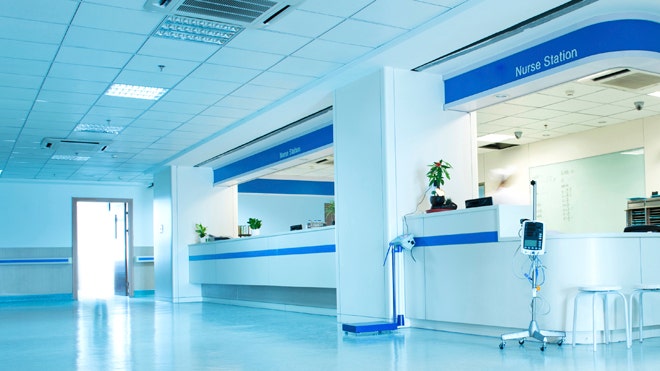When John Hobart first found out he had colon cancer, he was supposed to be asleep.
“I was on the table [after my colonoscopy], and they had just put me in a recovery room,” Hobart said. “I was supposed to be out still, but I could overhear a doctor talking about my cancer and how they were going to tell me.”
Hobart said he was “dumbfounded. It really doesn’t register at first.”
A nurse later confirmed what Hobart already knew – the doctors had found a large cancerous tumor in Hobart’s lower colon. While the diagnosis was definitely not what Hobart wanted to hear, part of him wasn’t surprised. Coming from a family that rarely went to the doctor, Hobart had waited until the last second to get screened.
“I had a feeling that it probably was going to be cancer because my mother died of cancer,” Hobart said. “Nobody in my family ever went to the doctor, which was such a mistake. You literally had to be on the ground to go to the doctor. But thank goodness I went – a couple more months, and I’d have been dead.”
March is National Colorectal Cancer Awareness Month, and Hobart is sharing his story in hopes that people will realize the importance of getting screened. Currently, colon cancer is the second leading cause of cancer-related deaths, with approximately 150,000 new cases diagnosed in the United States each year.
After getting over the shock of his diagnosis and understanding his chances, Hobart set out to find the right oncologist to help treat his cancer. He came across Dr. Brett Ruffo, a board-certified colorectal surgeon at Peconic Bay Medical Center in Riverhead, N.Y. Ruffo easily related to Hobart, having lost his own father from colon cancer because he had waited too long.
“He was a stubborn Italian and was told never to go to the doctor,” Ruffo said. “By the time he went it was too late. He had a very miserable course – a terrible metastatic disease that spread to his liver, lung, and brain actually.”
Getting screened
There are a variety of ways to test for colon cancer, including a stool-blood test, a CT scan – and the most common – a colonoscopy.
“The most beneficial screening procedure is a colonoscopy,” Ruffo said. “Not only is it diagnostic, but also therapeutic because we can remove polyps at the same time. And it’s a very benign procedure – all you do is drink a bowel preparation to clean out the colon. Take a nap, wake up, and it’s done.”
However, many don’t resort to colonoscopies until after they present with symptoms. According to Ruffo, it’s difficult for people to determine on their own whether or not they are actually experiencing colon cancer warning signs.
“The downside to colon cancer is that it’s hard to identify,” Ruffo said. “We always talk about looking for bloody bowel movements, some unexplained weight loss, or diarrhea and change in stool. While all of these can be symptoms, unfortunately there is not one specific symptom that’s going to say you have colon cancer.”
Because of its almost elusive nature, Ruffo and other colorectal surgeons echo the need to get screened as early as possible.
“The standard of care is [to get screened] at 50 years old,” Ruffo said. “Some think screening ages should be early – around 40. But it is usually 50 if you have no family history or no other risk factors. If a family member is diagnosed at 55, then you should get screened 10 years earlier [at 45].”
Saving Hobart’s life
Getting screened early would have meant an entirely different experience for Hobart.
“I learned at 45, and if I had went in for a screening earlier, I would have avoided a lot,” Hobart said. “Dr. Ruffo tells me that dating back 10 years, that’s how long the cancer was in me. That’d be 2003. If I had gone in a lot earlier, it would have been a lot easier to take out and a lot less of a problem.”
Ruffo worked with Hobart a full year to help rid him of his tumor. Hobart first had to undergo months of chemotherapy to reduce the size of the tumor before Ruffo would operate on him. During that time, Hobart suffered from a number of complications such as hair loss, bleeding and more. He also had to be fed intravenously and was hooked up to a bag of nutrients every day for 16 hours. Hobart said the bag proved to be a struggle, as it would constantly rupture.
“I actually took a belt and strapped it around myself,” Hobart said. “Then I took an old cell phone and stuck it in with paper towels, and that helped to hold it in. I could go out during the day, and it wouldn’t leak.”
Hobart said the disease didn’t affect just his life – but his partner’s life as well.
“She had to take care of me,” he added. “ It was really a lot of stress on both of us. And there was no eating – I lost 50 pounds.”
The chemotherapy treatment reduced the size of the tumor enough so that Ruffo was able to completely remove it. Hobart said he will never forget how lucky he was and will continue to advocate early colon cancer screening for as long as he lives.
“Go out and get a colonoscopy,” Hobart said. “It doesn’t hurt, and you don’t feel a thing. A lot of guys are big and macho and don’t want to go. But you know what – it saves you a lot of trouble in the long run.”






Leave a Reply